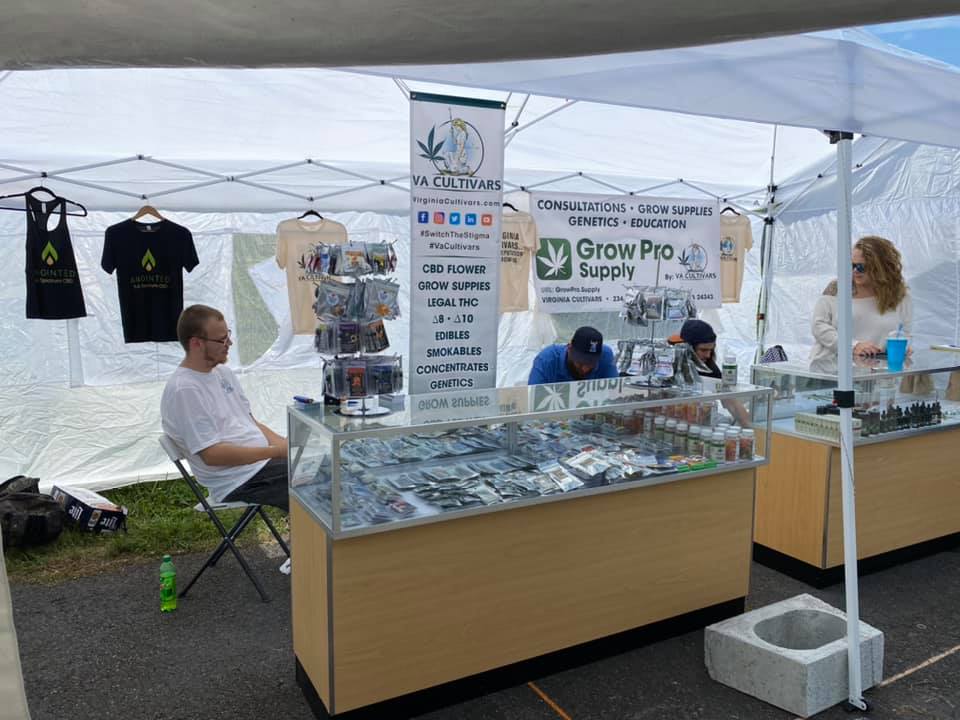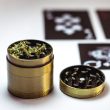
Hemp-Derived Delta-9: Everything You Need to Know
Hemp-derived Delta-9 THC below 0.3% has gained increasing attention in recent years, particularly since the legalization of hemp and hemp-derived products in the United States in 2018. In this article, you will learn everything you need to know about hemp-derived Delta-9 THC below 0.3%, including its definition, properties, legal status, and more.
Understanding the properties and potential benefits of hemp-derived Delta-9 THC below 0.3% is essential for those who use hemp products for medical, therapeutic, or recreational purposes. To provide a comprehensive guide to Delta-9 THC, we will also cover safe usage practices and recommended dosages for hemp-derived Delta-9 THC below 0.3%.
Definition of Hemp-Derived Delta-9 THC Below 0.3%
Delta-9 THC is a cannabinoid in cannabis plants responsible for the psychoactive effects commonly associated with cannabis use. Hemp-derived Delta-9 THC below 0.3% refers to Delta-9 THC derived from hemp plants, defined as cannabis plants containing no more than 0.3% Delta-9 THC by dry weight.
While Delta-9 THC above 0.3% is illegal under federal law, hemp-derived Delta-9 THC below 0.3% is legal under the 2018 Farm Bill, which legalized hemp and hemp-derived products. It has led to increasing hemp-derived Delta-9 THC products, including edibles, tinctures, and topicals.
Hemp-derived Delta-9 THC below 0.3% is distinct from other forms of Delta-9 THC, such as those found in cannabis, which typically contains higher levels of Delta-9 THC and is illegal under federal law. It is also distinct from other cannabinoids, such as Delta-8 THC, Delta-7 THC, and CBD, which have unique properties and effects.
Properties and Potential Benefits of Hemp-Derived Delta-9 THC Below 0.3%
Hemp-derived Delta-9 THC below 0.3% shares many properties with Delta-9 THC found in cannabis, including its ability to bind to cannabinoid receptors in the brain and produce various effects.
Pain Relief
Delta-9 THC below 0.3% has demonstrated potential as a pain relief option for people experiencing various types of pain. Its ability to alleviate pain is thought to be due to its interaction with the endocannabinoid system in the body.
The endocannabinoid system is a complex network of receptors and neurotransmitters that regulate various physiological processes, including pain perception. When THC interacts with these receptors, it can activate pathways that can help reduce pain sensation.
Studies have shown that Delta 9 THC may effectively treat several types of pain, including chronic, neuropathic, and pain associated with multiple sclerosis and cancer. It has also been suggested that THC may be more effective at reducing certain types of pain than traditional pain medications such as opioids.
Insomnia Treatment
Delta-9 THC below 0.3% may benefit individuals with insomnia, although understanding its effects fully understand its effects.
THC works by activating cannabinoid receptors in the brain that regulate sleep. Studies have shown that Delta 9 THC can have sedative effects and may help promote sleep. It can also reduce the time it takes to fall asleep and increase the time spent in deep sleep, which is the most vital stage of sleep.
Neuroprotection
Delta-9 THC below 0.3% has been shown to have neuroprotective effects through several mechanisms. One of the primary mechanisms is its ability to reduce oxidative stress in the brain. Oxidative stress is a process that occurs when there is an imbalance between free radicals (molecules that can damage cells) and antioxidants (molecules that neutralize free radicals). This imbalance can lead to cell damage and death and has been implicated in various neurological disorders.
Research has shown that delta-9 THC may act as an antioxidant, reducing oxidative stress and protecting neurons from damage. Studies have also suggested that delta-9 THC may be able to reduce inflammation in the brain, which can also contribute to neurological disorders.
It is important to note that research on the potential benefits of Delta-9 THC is still in its early stages, and more studies are needed to understand its effects fully.
As with any supplement or medication, it is essential to consult a healthcare professional before using hemp-derived Delta-9 THC below 0.3%, especially if you have any pre-existing medical conditions or are taking other medications.
Legal Status of Hemp-Derived Delta-9 THC Below 0.3%
Hemp-derived Delta-9 THC below 0.3% is legal under federal law, thanks to the 2018 Farm Bill. The Farm Bill legalized hemp and hemp-derived products, including cannabinoids such as Delta-9 THC, if they contain less than 0.3% Delta-9 THC by dry weight.
This means hemp-derived Delta-9 THC products are legal to buy and sell in the United States if they meet these criteria.
However, it is important to note that the legality of Delta-9 THC can vary by state, and it is essential to be aware of local laws before using these products. Some states have stricter regulations on Delta-9 THC, and you must check with local authorities to ensure you comply with any rules or restrictions.
It is also worth noting that the legal status of Delta-9 THC can be confusing, especially given the similarities between hemp-derived and cannabis-derived Delta-9 THC. It is essential to be aware of the differences between these products and to ensure that you purchase hemp-derived Delta-9 THC products from a reputable source.
How Hemp-Derived Delta-9 THC Below 0.3% Differs from Other Forms of Delta-9 THC and CBD
Hemp-derived Delta-9 THC below 0.3% differs from other forms of Delta-9 THC and CBD in several ways.
Firstly, hemp-derived Delta-9 THC below 0.3% differs from cannabis-derived Delta-9 THC, the psychoactive compound responsible for the “high” associated with cannabis use. While both forms of Delta-9 THC have similar chemical structures, hemp-derived Delta-9 THC below 0.3% is non-intoxicating and will not produce the same psychoactive effects as cannabis-derived Delta-9 THC.
Secondly, hemp-derived Delta-9 THC below 0.3% differs from Delta-8 THC and Delta-7 THC. Delta-8 THC is another minor cannabinoid found in hemp and cannabis, which is similar in structure to Delta-9 THC but with a slightly different molecular arrangement. Delta-8 THC has been reported to have similar effects to Delta-9 THC but with a lower psychoactive potency.
Delta-7 THC is a synthetic form of THC that is not found in nature. It is typically more potent than Delta-9 THC but also has a shorter duration of action.
Lastly, hemp-derived Delta-9 THC below 0.3% differs from CBD, another popular cannabinoid in hemp and cannabis. While CBD has various potential health benefits, it is non-intoxicating and does not produce the same psychoactive effects as Delta-9 THC.
Overall, it is essential to understand the differences between these different cannabinoids and to choose products that meet your needs and preferences. If you are interested in trying hemp-derived Delta-9 THC below 0.3%, make sure you purchase products from a reputable source and check with local authorities to ensure that you comply with any regulations or restrictions.
Things To Consider Before Taking Delta 9 THC Below 0.3%
You should consider some things before taking Delta-9 THC below 0.3%. Let’s take a look at them.
Legal status
Before considering using delta-9 THC, it is essential to research the legality in your area. The legality of delta-9 THC below 0.3% can vary depending on your state or country. In the United States, the 2018 Farm Bill legalized hemp and hemp-derived products, including Delta-9 THC below 0.3%, but some states have laws and regulations that may be more restrictive.
Dosage
The dosage of delta-9 THC below 0.3% can vary depending on the individual’s weight, age, and tolerance. Starting with a low dosage is always recommended, and gradually increasing it until you reach your desired effect can help reduce the risk of side effects.
Drug interactions
Delta-9 THC can interact with other medications, so it is crucial to speak with a healthcare professional before taking it if you are already taking other medications. Some medications, like blood thinners and antipsychotics, can have dangerous interactions with Delta-9 THC, leading to adverse effects like excessive bleeding or increased anxiety.
Personal health considerations
Individuals with certain medical conditions like heart disease, high blood pressure, and psychiatric disorders may not be able to tolerate Delta-9 THC, even in small amounts. If you have any pre-existing medical conditions, it is essential to speak with a healthcare professional before taking Delta-9 THC.
Conclusion
Hemp-derived Delta-9 THC below 0.3% is a relatively new addition to the cannabis market. Its popularity is rising due to its potential therapeutic benefits and legality in many states. While it is chemically similar to Delta-9 THC found in cannabis, its source and legal status differ.
If you want to learn more about 0.3% Delta-9 THC or just looking for a reliable source for Delta-9 THC Virginia, check out our store, where you will find legal hemp and cannabis products shipped directly to your door. We are one of the best Delta-9 Virginia vendors offering high-quality products at reasonable prices, allowing you to get your dose of your favorite cannabinoid the way you like it the most.












vorbelutr ioperbir
Rattling clear web site, thankyou for this post.
http://www.vorbelutrioperbir.com